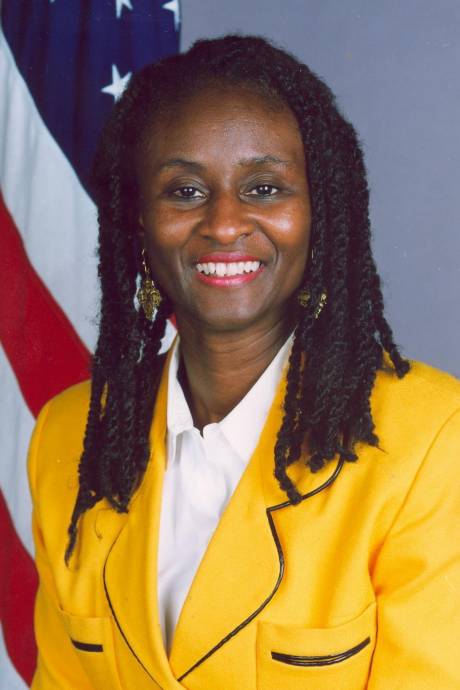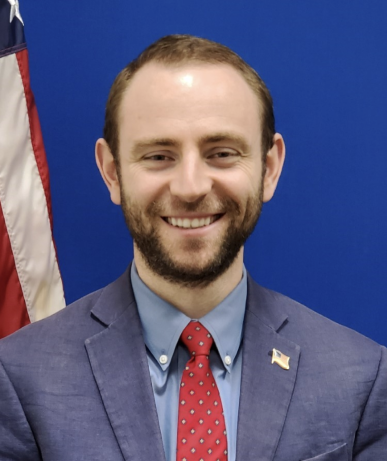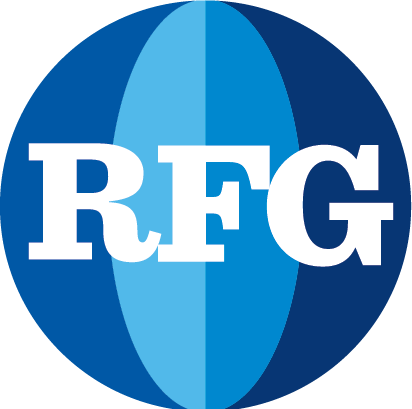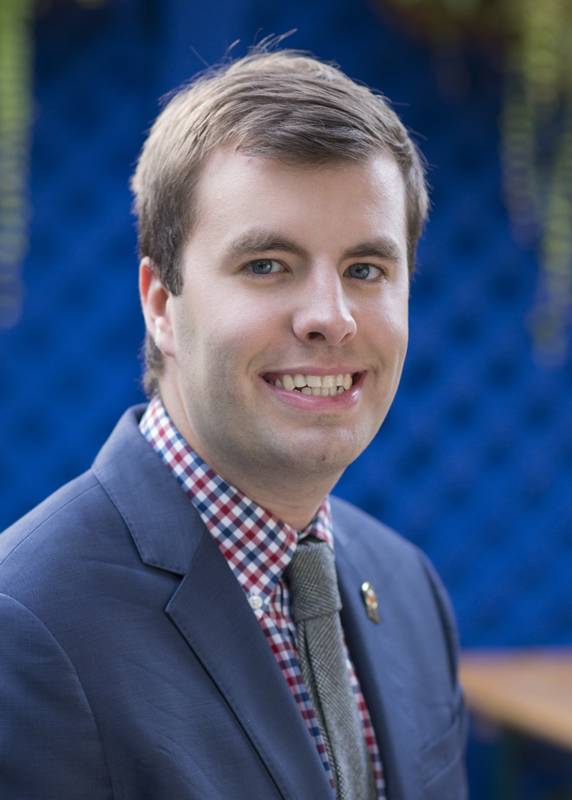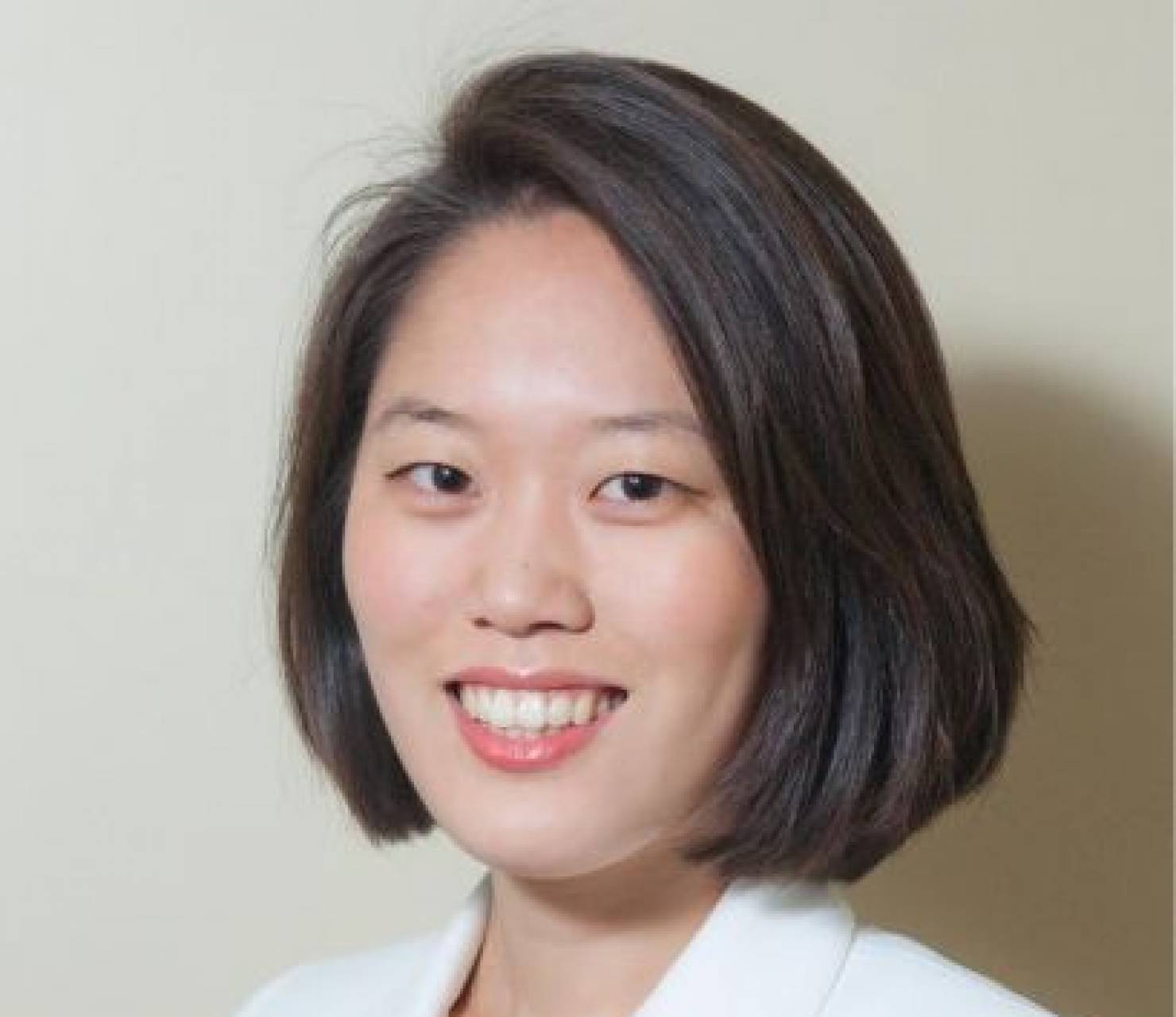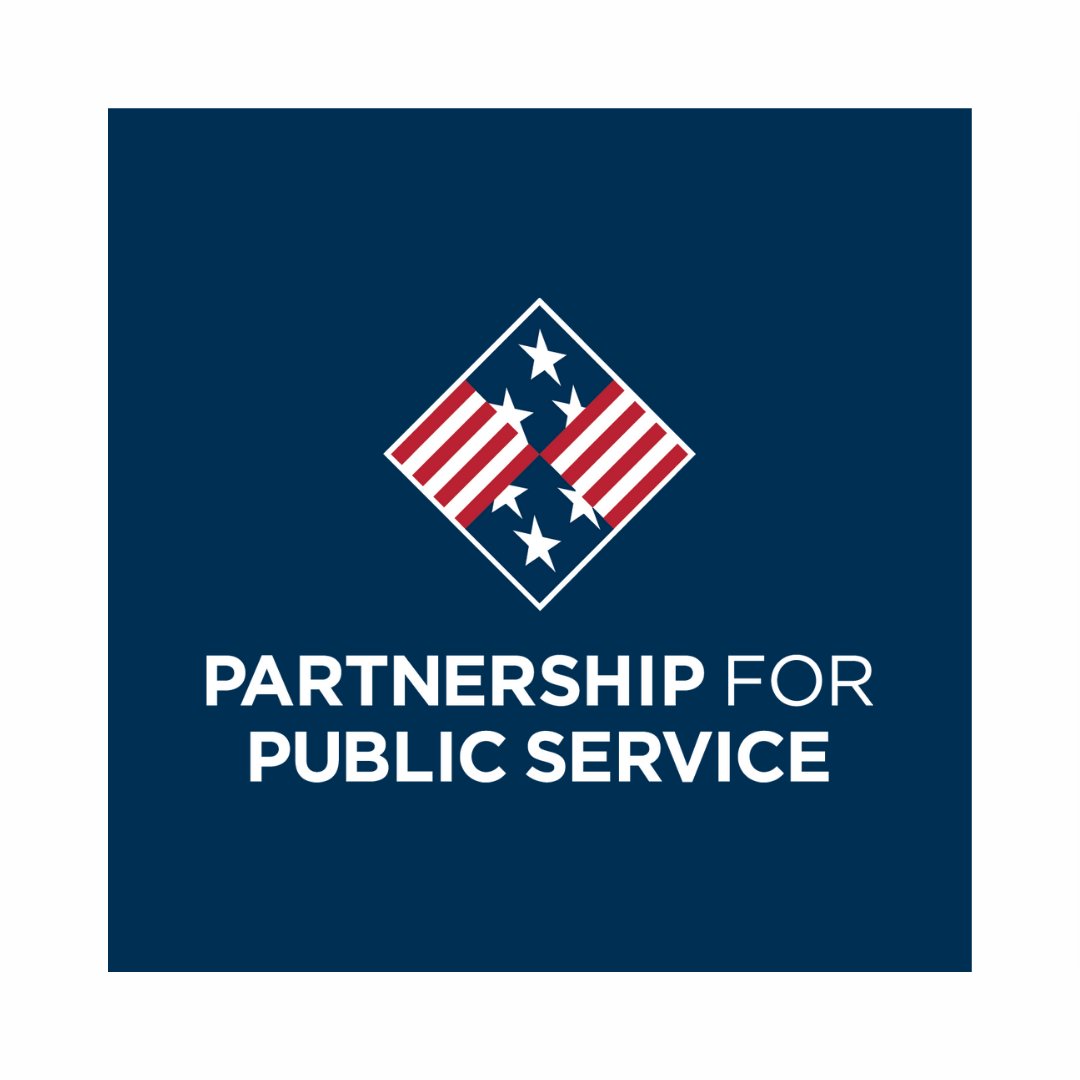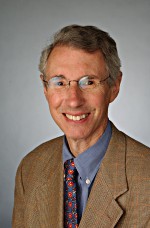
The following article is by Dr. Michael Schneider, RFG’s Career Advisor to the Foundation’s Fellows and Alumni. Learn more about Dr. Schneider here.
In 1961 just as Charles and Marie Robertson were envisioning a foundation to help fulfill JFK’s call to public service, a fledgling reporter for the Newark (NJ) Evening News applied to the Foreign Service of the U.S. Information Agency (USIA).
On October 20, 1962, my class of USIA junior FSOs was sworn in. We awaited the iconic journalist and then-Director of USIA, Edward R. Murrow, to administer the oath of office. When he didn’t show up for the ceremony we were dismayed. Our trainers had assured us he would welcome us officially.
A far more important reason kept Murrow at the White House that day: to advise Kennedy on how the U.S. should deal with the Cuban Missile Crisis.
The world teetered on the edge of a nuclear cataclysm. We wondered what we had signed up for. The tension was radioactive. But leaders stepped back from the brink, and over time found a way to compete and conflict short of all-out war.
Today the Russian military causes terrible pain and suffering among the Ukrainian people and is destroying Ukrainian cities. Leaders in the West are providing support to Ukraine and are aware of the Russian challenge to international order and peace, yet are reluctant to take steps that might lead to an escalated conflict.
We seem to have returned full cycle to that time some 60 years ago in which every move of the great powers implied a possible nuclear war – except that nuclear war today would be far more devastating.
In those six decades, I’ve seen major changes and ongoing global challenges. I enjoyed the opportunity in my own public service to contribute a little to American interests and a better world regarding each of these changes. My work with Robertson Fellows has revealed to me how much more complex the world of 2022 is from the 1960s.
Each of the revolutions of the past six decades offers important opportunities for RFG Fellows to fulfill the mission posed by the original ‘new frontier’ concept of the early 60s and to pave the way to master new frontiers in this century.
The End of the 1st Cold War and Beginning of Cold War II?
We may need to add “1st” to describe the Cold War that began approximately in 1945 and endured until the end of the Soviet Empire in 1989-91. East-West tensions dominated international affairs in that period. In public service we certainly felt the strains almost daily; necessarily a lot of foreign policy was influenced by the Cold War backdrop.
From the outset of my career until the early 90s, the Cold War shaped U.S. foreign policy in a myriad ways, large and small. In my first assignment in Calcutta (now Kolkata) I saw first-hand the ideological competition between East and West for the support of the leading Third World nation, India. This extended even to the Indian equivalent of a poetry slam – the All-India Bengali Language Furtherance Society held its annual event in 1964 in which I, a junior officer trainee, was asked to recite a poem in Bangla. The Soviet consulate Bengali speaker, also young, presented a poem as well. Fortunately for me, my teachers selected a beautiful poem by Rabindranath Tagore, very evocative of the natural beauty of ‘shonar [golden] Bengal’ in the rainy season. My efforts paid off with a medal for “efficiency in Bangla.”
Throughout the 60s, 70s, and 80s, the East-West rivalry dominated U.S. global engagement. In the early-mid-80s the rivalry came to a head with intense efforts by both sides to gain advantage over European public support with arms control issues. USIA contributed to U.S. diplomatic efforts related to the placement of mid-range missiles in Europe as a way of ‘building up’ to pressure the Soviets to agree to ‘build down.’ This public diplomacy effort was a case study in listening to and understanding the hopes and fears of foreign publics and then translating such awareness into cogent policy.
Later in the 80s we saw also the necessity to counter Soviet disinformation. This was the ‘analogue’ version of the campaigns of the 21st century. We learned we could carefully explain to editors and broadcasters abroad how the Soviets, along with East German partners, created the most blatant distortions and parlayed these stories around the globe to vulnerable audiences. Our efforts paid off in the field and led eventually to informal agreements by the Gorbachev leadership to temper their efforts.
Beyond countering Soviet disinformation, USIA and a number of NGOs made special outreach efforts in the 80s in support of glasnost and perestroika. Public diplomacy piggybacked on the Helsinki Accords of 1975, and at the ’88 Reagan-Gorbachev summit through US-USSR Information and Cultural talks we signed a historic agreement to extend and expand bilateral exchanges, including a wider array of youth exchanges.
We expected too much reform in those heady times. Boris Yeltsin failed to build a sound democracy in the 90s and Vladimir Putin did nothing to install democratic practices and values. Instead, he has substituted Russian imperial nationalism for communism.
In the current crisis Putin has cut his nation off from international communication almost as thoroughly as the Soviet Union of the 50s and 60s. The Russian public is denied access to news and information about the situation in Ukraine as well as international views unless they comport with Russian leadership interests.
As the tragic and brutal attacks on Ukraine attest, Russia retains the capacity to destroy opponents and their buildings, but not their spirit.
The world urgently needs a halt to the fighting in Ukraine. Then nations and international organizations will have to decide how to achieve a settlement and reconstruction of an independent Ukraine, and how to foster stable relations with Russia and eventually greater openness and lasting reforms.
We are already seeing some of the broader consequences of the Russian invasion of Ukraine, such as disruption in the global energy markets and food supply, particularly to food-needy Africa and South Asia. If China increases its military, technology, and financial support for Russia, the stakes will broaden further. Even with a negotiated settlement and relative peace between Ukraine and Russia, the trauma of the past month has created long-lasting tensions and a fragile situation likely to erupt from time to time. The ramifications of the war are many and endanger a number of important global priorities.
Ongoing Transnational Challenges
As the bipolar world became a little more stable in the 70s, we all were able to take a few steps back from the East-West crisis mentality and recognize other vital transformations at play. They continue today and will likely remain important challenges for public service. These include:
Human rights and support for nascent democratic governance movements occupied a good deal of my career and remain, in my view, a major concern for U.S. foreign policy and national security. How should the U.S. balance our beliefs and values in support of democracy with interests in dealing with regimes of which we don’t approve? How can we support democracy while observing the limits of our ability to infuse democratic values in quite different cultural and political contexts? Although Nation Building has limits, nation-states can cooperate more and conflict less if they share values on the internal order of government and societies.
The rise of civil society may well be a more decisive factor going forward in supporting democracy and with regard to many other broad issues. This is best seen in activism related to environmental problems, particularly climate change. The current crisis in Ukraine threatens to undo the very tenuous global movement to reduce climate change.
The international women’s movement, which grew out of the environmental movement in the early 70s has obviously been at the center of worldwide change and has spurred efforts on behalf of minority and displaced groups around the world. There is however much unfinished business.
Similarly great advances in public health, spreading urban growth, and demographic change have been monumental phenomena. Great strides have occurred in the fight against Malaria, parasitic diseases, polio, smallpox, cholera, etc., even as the world continues to experience pandemics from viruses such as HIV/AIDS and COVID-19. For those who want to join these battles, field experience and even adding an MPH degree can open doors.
A communications revolution has enabled far greater knowledge sharing and public participation in all aspects of modern life. Yet, dis- and mis-information is rampant and streams in breathtaking speed. Digital dissension is so widespread and endemic in every corner of the globe. We’re learning the hard way that this particular new frontier will require much thought to protect the open flow of information and somehow find a consensus and modalities for greater restraint of partisanship – not an easy task.
A Few Observations about Public Service Careers in the 21st Century:
Public servants are especially challenged to master their own specialties while also understanding the broader far more complex universe. It’s not enough to be a specialist, because one can become so ingrown that the specialty becomes the perceived universe. That mindset will not help even a dedicated professional to achieve desired outcomes. All the other organizational players will resent and resist any particularly partisan or overly narrow specialized option.
It’s important to master the public/community dimension of any project you’re responsible for. Somewhat akin to the generalist/specialist debate, increasingly it is not likely that any initiative can be achieved without considering the public response. Instead, we must ask, what values, public opinion, and communication needs are involved in pursuit of specific goals? How can you justify your initiative to the larger community? Of equal importance, is your choice of options based on an understanding of the needs and interests of affected communities or societies?
Furthermore, how can you communicate effectively not only with other actors within your agency or other institutions, but also with affected communities? This orientation, with related skills might be the most significant element of success in public service and constitutes integrative thinking and skill at building partnerships. Few issues can be treated without reference to other concerns and such concerns often require bringing together different kinds of expertise.
Diversity, equity, and inclusion is similarly an admirable and important set of concerns that Robertson Fellows can support in their work and public engagement, and I hope through involvement in RFG activities. From a purely economic perspective, why wouldn’t any organization or society want to be able to draw on the talent of all citizens?
This nation has come to realize that our great democratic experiment is unfulfilled so long as we don’t reflect the diversity of our society in all walks of life. To me, DEI values represent core support for fairness and fair play and these are the foundation for American society. The U.S. has become all the more a nation of nations and this ought to be reflected in the public arena. Yet, as our RFG DEI Council found out, there are many gaps.
Overcoming the intensifying polarization in America, especially in Washington, DC is even more important today than a decade or more ago. Respect and collegiality with rivals in today’s highly charged and polarized policy atmosphere is increasingly important. In the long run, those who reach out to understand differing viewpoints, who – with patience and persistence – can gain trust will play a special role in American public life.
…. But I think I am preaching to the choir – my observation of working with Robertson Fellows is that you possess a thirst for knowledge and a belief in fairness and fair play. This is a core value on which America has grown and for which your leadership will meet the tests of time.
It has been a distinct pleasure to work with you all — with Geoff, Bill, Julia, and Olivia and the RFG Advisory Board, Alex, and Sharon. A world of challenge and change awaits your ideas, best efforts, and leadership. Many thanks!
